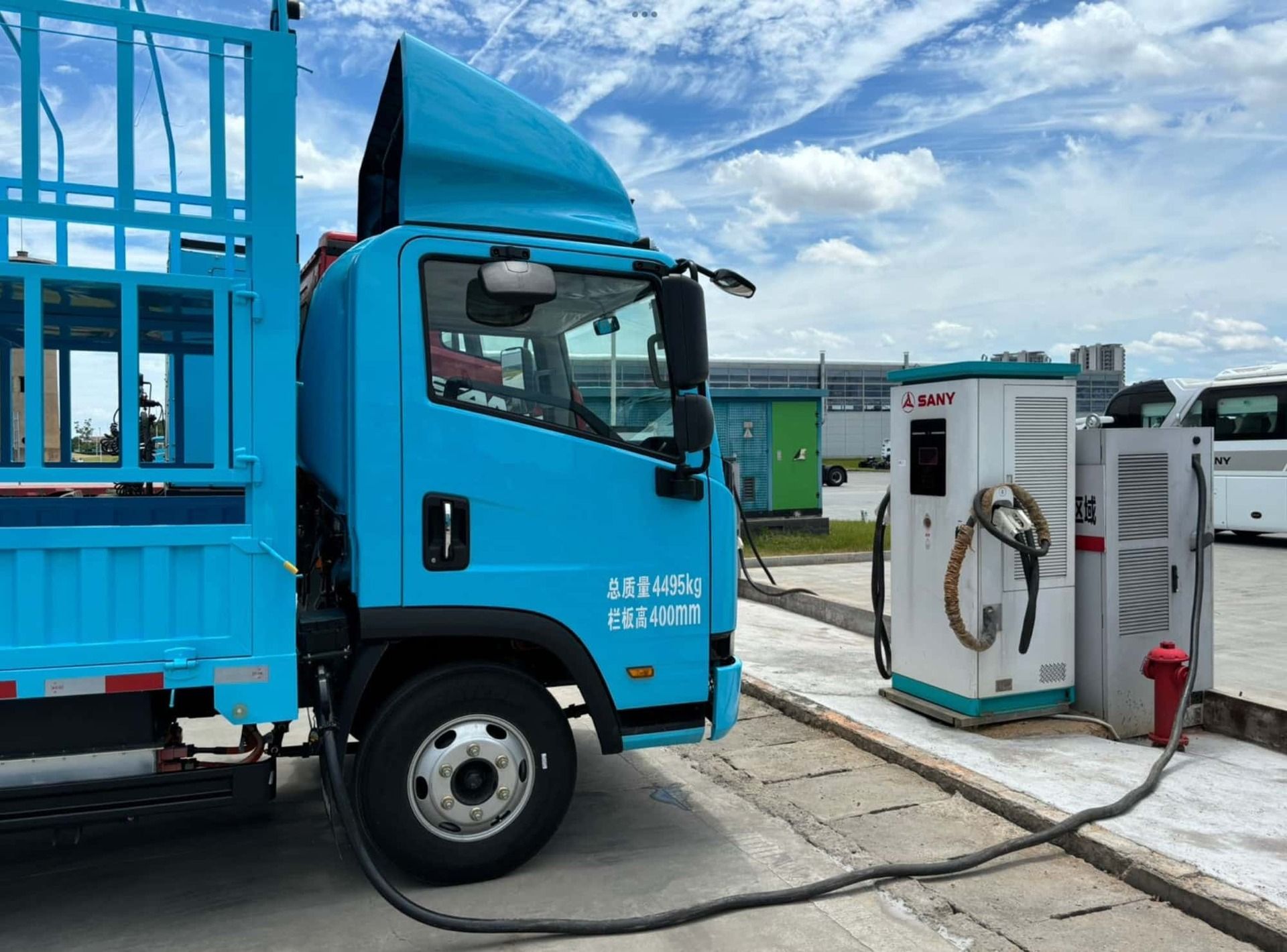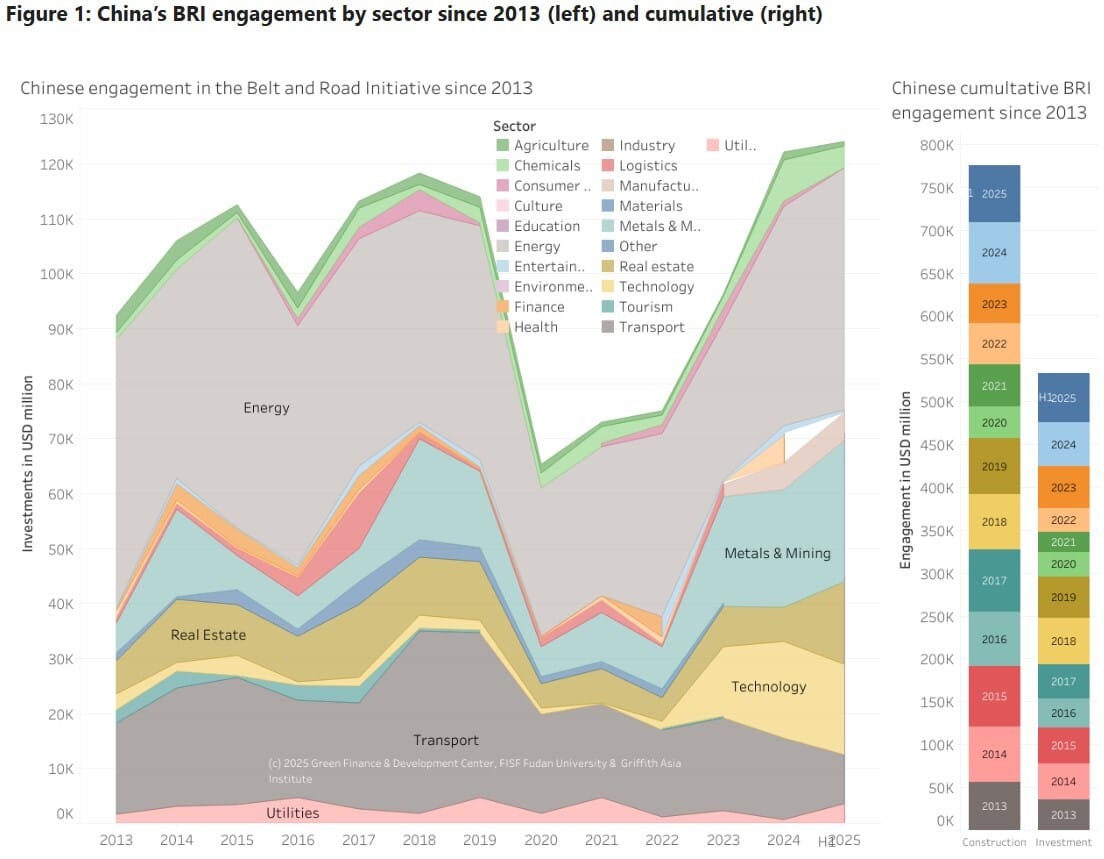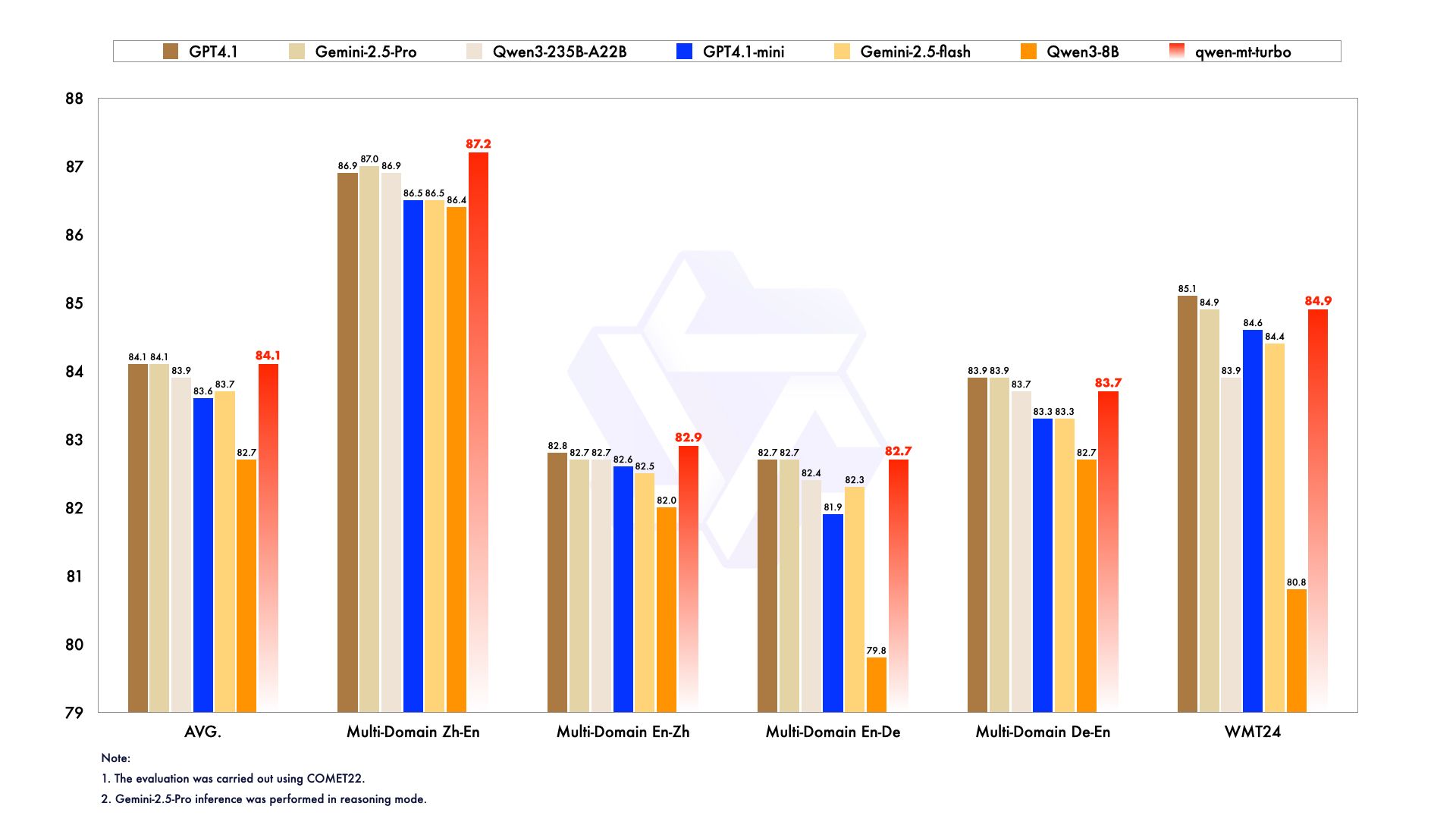- China Insights Weekly | AI, Innovation, Business & Tech in China
- Posts
- JD’s 10,000 AI Kitchens 🍜 Ali Outcodes GPT 🤖 China Builds Fusion Future ⚛️
JD’s 10,000 AI Kitchens 🍜 Ali Outcodes GPT 🤖 China Builds Fusion Future ⚛️
China Insights Weekly for July 28. Unpacking China’s Economic and Technological Advances.

Welcome back to this week’s edition of the China Insights Weekly Newsletter!
Here are some of the key highlights for this week’s edition:
Alibaba’s AI coder beats top Western models in software benchmarks
Hainan Free Trade Port set to slash tariffs and boost global access
Electric trucks gain speed in China, pushing diesel demand into decline
eVTOL milestone as China certifies world’s first 2-ton electric vertical aircraft
Dive deeper into these stories and more by clicking the headlines below. We value your feedback. Let us know your thoughts or suggestions on LinkedIn, X or Facebook.
🎁 Support us and earn exclusive rewards – click here to share with your friends
🚀 Headlines
Chinese e-commerce giant JD.com has opened its first self-operated physical restaurant, 7Fresh Kitchen, in Beijing’s Dongcheng district, offering only food delivery and pick-up services with no dine-in option. The restaurant received 800 orders on its opening day. It features an open kitchen with cooking machines aiding chefs and a pick-up area for delivery riders and customers. The menu is available exclusively on JD Takeaway, JD.Com’s food delivery app, with prices ranging from CNY10 to CNY30 (USD 1.40 to USD 4.20) per dish. The move is part of JD.Com’s strategy to differentiate itself from competitors like Meituan and Alibaba, focusing on strengthening its self-operated and home appliance business, as well as enhancing the synergy between its offline and e-commerce operations.
JD.Com plans to open 10,000 virtual restaurants over the next three years, focusing solely on meal delivery and takeout services. The company will invest CNY1 billion (USD 139.5 million) to recruit partners to create 1,000 signature dishes for its 7Fresh Kitchen restaurants. Partners will be responsible for creating new dishes, while JD.Com will manage the outlets, including site selection and operational costs. JD.Com has already received nearly 7,000 applications from catering brands and individual chefs. Meituan’s Raccoon Canteen also plans to open 1,200 centralized takeaway kitchens nationwide over the next three years.
China's Alibaba releases open-source AI coding model that tops charts, and a 92-language AI translation model (link, link)
Alibaba Group Holding has launched Qwen3-Coder, an open-source AI coding model that matches and surpasses some of the most powerful global products. The Qwen3-Coder's performance on the SWE-Bench, which evaluates models' ability to complete software engineering tasks, is comparable to the latest Claude 4 series from US AI startup Anthropic and outperforms OpenAI's GPT-4.1. A novice programmer can use Qwen3-Coder to complete a week's work of a senior programmer in just a day. The model will be integrated into Tongyi Lingma, Alibaba's AI coding assistant, launched in October 2023. The penetration rate of AI coding models in software development is around 20%, primarily in frontend and small projects. It is projected to increase to 40% to 50% within a year.
Alibaba has launched Qwen-MT, an advanced AI translation model that supports translations across 92 languages, covering over 95% of the global population. Qwen-MT leverages trillions of multilingual and translation tokens to enhance its capabilities, offering high customizability with features like terminology intervention, domain prompts, and translation memory. The model achieves significant improvements in translation accuracy and linguistic fluency, outperforming comparably-sized models like GPT-4.1-mini and Gemini-2.5-Flash in multi-domain translation benchmarks.
China’s demand for wellness and outdoor leisure is attracting niche sportswear labels. Danish brand Nordisk will launch stores in China this year via a JV with Korea’s K2 Group and China’s Black Ant Capital. Italian label Hydrogen enters through BranDNA and Creas F&C Group, backed by Mitsui Fashion, with a localized collection set for 2026. Topsports, China’s largest sportswear retailer, has secured exclusive partnerships with Canada’s Ciele Athletics, UK-based Soar, and Norway’s Norrøna. The outdoor equipment market rose from RMB 67.5 billion (USD 9.2 billion) in 2019 to RMB 87.2 billion (USD 12 billion) in 2023, and is expected to hit RMB 100 billion (USD 14 billion) by 2028.

Turn AI into Your Income Engine
Ready to transform artificial intelligence from a buzzword into your personal revenue generator?
HubSpot’s groundbreaking guide "200+ AI-Powered Income Ideas" is your gateway to financial innovation in the digital age.
Inside you'll discover:
A curated collection of 200+ profitable opportunities spanning content creation, e-commerce, gaming, and emerging digital markets—each vetted for real-world potential
Step-by-step implementation guides designed for beginners, making AI accessible regardless of your technical background
Cutting-edge strategies aligned with current market trends, ensuring your ventures stay ahead of the curve
Download your guide today and unlock a future where artificial intelligence powers your success. Your next income stream is waiting.
Hainan Free Trade Port to launch closed-loop customs in December 2025, increasing tariff-free lines to 74% (link)
China's Hainan Free Trade Port (HFTP) will implement a closed-loop customs system on December 18, 2025, marking a significant step in its transformation into a globally competitive free trade port. This initiative, first announced in 2018, aims to separate Hainan's customs border from mainland China, creating a high-standard, free trade environment. The new system will feature eight international ports and ten second-line ports operating under an upgraded "declare once, inspect once, release once" model. The scope of zero-tariff goods will expand from 21% to 74% of all tariff lines, including consumer goods, vehicles, and production equipment. Individual travelers will still access Hainan without additional documentation, and the duty-free shopping allowance will remain at RMB 100,000 per year.

Electric truck sales surge 175% in China, slashing diesel use and accelerating peak oil timeline (link)
China’s electric truck sales jumped 175% in H1 2025 to 76,100 units, making up 25% of all new truck sales. Backed by up to RMB 95,000 (USD 13,264) in subsidies, growing charging infrastructure (over 2,400 stations, led by Teld), and low electricity prices, EV trucks are now more cost-effective than diesel. Diesel use is projected to fall 6.3% in 2025 to 11.3 million tons, and 40% by 2030 in the transport sector. EV heavy trucks may hit 70–80% of new sales within 2–3 years, hastening peak oil demand forecasts.

Chinese electric aircraft maker AutoFlight has delivered the CarryAll V2000CG, the world's first eVTOL aircraft over one ton to receive all three major airworthiness certifications: a Type Certificate, Production Certificate, and Airworthiness Certificate. This marks a significant milestone in the development and certification of large-scale eVTOL aircraft. The CarryAll V2000CG is an unmanned, fully electric aircraft with a maximum takeoff weight of two metric tons (4,400 pounds), a payload capacity of 400 kilograms (880 pounds), a cruising speed of 124 mph (200 kph), and a maximum range of 124 miles (200 km). The aircraft is designed for cargo delivery, emergency supply transport, and disaster response missions. The global eVTOL market is growing, with recent major orders from Chinese firms, indicating increasing international interest in Chinese-built eVTOL platforms.

CarryAll V2000CG was developed entirely by Autoflight
China launches national fusion energy company with USD 1.6 billion investment from state-owned energy firms (link)
China has launched China Fusion Energy Co. Ltd., a national fusion energy company backed by leading state-owned nuclear and energy firms, with an initial investment of USD 1.6 billion. The company, a wholly-owned subsidiary of China National Nuclear Corp. (CNNC), was inaugurated in Shanghai on July 22, 2025. It aims to lead the development of controllable nuclear fusion technology as part of China's long-term strategic energy plan. The new venture has attracted significant investment, raising its registered capital to 15 billion yuan (USD 2.1 billion). Key investors include CNNC (50.35% stake), Kunlun Capital (20% stake), and China National Nuclear Power Co. Ltd. (6.65% stake). The company plans a three-stage development from experimental reactors to commercial fusion power stations.
China has launched a massive hydroelectric project on the Yarlung Tsangpo River in Tibet, with a groundbreaking ceremony held on July 19, 2025. The project, expected to be the world's largest hydro-power facility upon completion, will have an annual electricity output of 300 billion kilowatt-hours, three times the capacity of China's Three Gorges Dam. The dam will consist of five cascade hydro-power stations, requiring a total investment of 1.2 trillion yuan (USD 167 billion). The primary purpose is to generate electricity for external markets and meet local energy needs in Tibet.
🎁 Bonus Stories
China’s Belt and Road investment hits record high 124 billion in H1 2025, driven by energy, mining and tech sectors (link)
In the first half of 2025, China's Belt and Road Initiative (BRI) saw record engagement with USD 66.2 billion in construction contracts and USD 57.1 billion in investments, totaling USD 124 billion across 176 deals. This marks the highest engagement in any six-month period since the BRI's inception in 2013. Energy-related engagement reached USD 42 billion, with oil and gas projects surging to USD 30 billion, driven by a USD 20 billion construction contract in Nigeria. Green energy projects also set new records, reaching USD 9.7 billion in wind, solar, and waste-to-energy projects. The metals and mining sector saw investments of USD 24.9 billion, surpassing the full year of 2024. Africa and Central Asia led regional engagement with USD 39 billion and USD 25 billion, respectively. Private sector companies, including East Hope Group and Xinfa Group, dominated investments. Cumulative BRI engagement since 2013 reached USD 1.308 trillion, with USD 775 billion in construction contracts and USD 533 billion in investments.

Nine additional Chinese cities have been awarded International Wetland City accreditation by the Ramsar Convention, bringing China's total to 22 and highlighting its global leadership in wetland conservation. The newly accredited cities are Chongming in Shanghai, Dali in Yunnan, Fuzhou in Fujian, Hangzhou and Wenzhou in Zhejiang, Jiujiang in Jiangxi, Lhasa in the Xizang Autonomous Region, Suzhou in Jiangsu, and Yueyang in Hunan. The Ramsar Convention, an international treaty for the conservation and wise use of wetlands, has 172 contracting parties and has recognized 74 cities worldwide with this accreditation. China's progress in wetland conservation provides valuable experience for global efforts, according to Musonda Mumba, the convention’s executive secretary. Notable wetlands include Chongming, the world’s largest estuarine alluvial island, and Lhasa’s Lalu Wetland National Nature Reserve, the highest-altitude and largest urban natural wetland globally.

☕ Support our work
If you enjoy our newsletter, please consider buying us a coffee to keep us energized in bringing you the latest insights! 🤓☕
👥 About us
China Insights is brought to you by Tomas Kucera, GM at Gemini Personnel in Shanghai, and Yereth Jansen, CEO at Darling Advertising + Design in Shanghai.




Reply